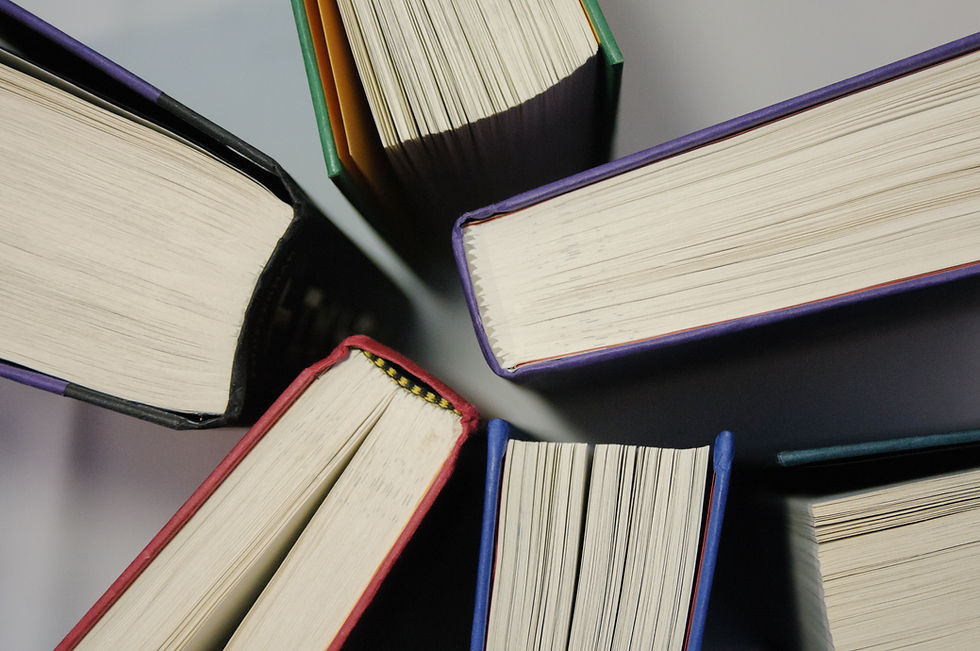Nineteen-Eighty Four: A Book Review
- Elise Parker-Bryant

- Jan 3, 2022
- 3 min read
Updated: Jan 4, 2022
*Contains mild spoilers*
George Orwell’s final, and probably most famous work, is a summation of everything that one might expect.
Orwell is a prolific figure in English literature who influenced the English language greatly, as many people are likely aware of some of the terms he coined. The popularity of the reality TV show Big Brother is one example – I think everyone will have heard of (or avidly watched) the high surveillance show. Or perhaps the notion of “Room 101”, which I initially knew as “a-place-of-no-return”. Although not everyone will have read 1984, I think a lot of people know of it and have an idea of what it is about. Reading 1984 will give you a greater insight into what makes Orwell, well … Orwell.

I read his other popular novel Animal Farm (prior to 1984) and found it fascinating: anthropomorphic farm animals overthrowing farmers, each animal having their own traits and working together to create a better life for themselves, creating their own government – what a fantastical idea! Orwell creates a sense of hope early on in both novels, but as the novels continue, the reader becomes less and less hopeful. Since I had read Animal Farm and had seen the inequalities prevailing and hope for a better life being lost, I expected similar from 1984 … and was not shocked to see parallels in both.
However, 1984 takes it up a notch. Instead of a fable with animals under a farmer’s rule, there is a more believable, tangible, imagined future with all humans under a severe surveillance state in a grey and grimy London setting, with everyone working for an omniscient/omnipotent ‘Big Brother.’ Always watched, fighting a never-ending war, struggling to get by without even access to a half-decent coffee (perish the thought)! I cannot say I ever felt hopeful reading the protagonist, Winston, trying to get through this bleak existence. He did everything he could to discretely encourage rebellion whilst also trying to stay alive long enough to hope to have some sort of impact.
Orwell is clearly a writer interested in politics and the impact it has across the world. He was a self-proclaimed socialist and critiqued the British government (see Orwell’s letter to Noel Willmett, 1944), arguing that the government is no longer working for the people and uses manipulative tactics (a sentiment that appears to be ever-growing, and at a particular high at this point in late 2021). To me, 1984, makes Orwell appear anti-government (particularly anti-totalitarian) and he uses his writing to critique issues he observes within politics.
1984 is more than just a political novel. There is an aspect of romance between Winston and a fellow party member, Julia, who use their relationship and sexual intimacy as a private act of rebellion against the Party. Although, this is not a great novel if you’re looking for a loving romance with any sort of romantic ending! Prepare to feel some level of unease as the fine line between love and hate is crossed in their relationship. In fact, Winston tells Julia, ‘I wanted to rape you and then murder you afterwards.’ From my personal, modern perspective, I struggled to understand how the relationship continued after this, but I had to be reminded that it was written in a different time and in the context of a dystopian society. Under severe circumstances, who is to say what is possible? Potentially, the intention is to leave the reader feeling as unsettled and distrustful as the characters within this world are.
1984 creatively tackles the navigation of flawed characters within a flawed world and evokes unease and tension for the reader as the plot unfolds. Orwell is able to provoke interesting ideas and debates surrounding language, politics, power (and maybe even love) in this final, widely influential novel. As with all literature, the reader will take away what resonates most strongly with them, and I believe anyone can be weirdly satisfied in 1984’s conclusion(s) – you’ll just have to read it all to see what I mean.



Comments